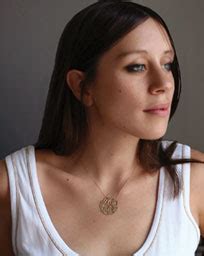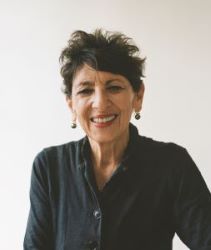A Quote by Stanislaw Lem
I had no hope. Yet expectation lived on in me, the last thing she had left behind. What further consummations, mockeries, torments did I still anticipate? I had no idea as I abided in the unshaken belief that the time of cruel wonders was not yet over.
Related Quotes
Day and night she had drudged and struggled and thrown her soul into her work, and there was not much of her left over for anything else. Being human, she suffered from this lack and did what she could to make up for it. If she passed the evening bent over a table in the library and later declared that she had spent that time playing cards, it was as though she had managed to do both those things. Through the lies, she lived vicariously. The lies doubled the little of her existence that was left over from work and augmented the little rag end of her personal life.
Tanith frowned. Did people still go on DATES any more? She was sure they did. They probably called it something different though. She tried to think of the last date she'd been on. The last PROPER date. Did fighting side by side with Saracen Rue count as a date? They ended up snuggling under the moonlight, drenched in gore and pieces of brain - so it had PROBABLY been a date. If it wasn't, it was certainly a fun time had by all. Well, not ALL. But she and Saracen had sure had a blast.
It would have been cruel in Miss Havisham, horribly cruel, to practise on the susceptibility of a poor boy, and to torture me through all these years with a vain hope and an idle pursuit, if she had reflected on the gravity of what she did. But I think she did not. I think that in the endurance of her own trial, she forgot mine, Estella.
It had been an awful thing to lose Henry the first time, to matrimony, but to discover what a false front he was capable of was another kind of blow, and it had left her almost speechless. Then there was the fury with herself—for she had known what Henry’s love was, and still she had gone back to suffer a little more at his hands.
Her first reaction was one of hope, because his eyes were open and shining with a radiant light she had never seen there before. She prayed to God to give him at least a moment so that he would not go without knowing how much she had love him despite all their doubts, and she felt an irresistible longing to begin life with him over again so that they could say what they had left unsaid and do everything right that they had done badly in the past. But she had to give in to the intransigence of death. (Love in the Time of Cholera)
She smiled. She knew she was dying. But it did not matter any longer. She had known something which no human words could ever tell and she knew it now. She had been awaiting it and she felt it, as if it had been, as if she had lived it. Life had been, if only because she had known it could be, and she felt it now as a hymn without sound, deep under the little whole that dripped red drops into the snow, deeper than that from which the red drops came. A moment or an eternity- did it matter? Life, undefeated, existed and could exist. She smiled, her last smile, to so much that had been possible.
He pulled the Carstairs family ring from his finger and held it out to Will. "Take it." Will let his eyes drift down toward it, and then up to Jem's face. A dozen awful things he could say, or do, went through his mind. One did not slough off a persona so quickly, he had found. He had pretended to be cruel for so many years that the pretense was still what he reached for first, as a man might absently turn his carriage toward the home he had lived in for all his life, despite the fact that he had recently moved. "You wish to marry me now?" he said, at last.
She had lived in that house fourteen years, and every year she had demanded of John that she be given a pet of some strange exotic breed. Not that she did not have enough animals. She had collected several wild and broken animals that, in a way, had become exotic by their breaking. Their roof would have collapsed from the number of birds who might have lived there if the desert hadn't killed three- quarters of those that tried to cross it. Still every animal that came within a certain radius of that house was given a welcome-the tame, the half born, the wild, the wounded.
At that moment a very good thing was happening to her. Four good things had happened to her, in fact, since she came to Misselthwaite Manor. She had felt as if she had understood a robin and that he had understood her; she had run in the wind until her blood had grown warm; she had been healthily hungry for the first time in her life; and she had found out what it was to be sorry for someone.
How sadly things had changed since she had sat there the night after coming home! Then she had been full of hope and joy and the future had looked rosy with promise. Anne felt as if she had lived years since then, but before she went to bed there was a smile on her lips and peace in her heart. She had looked her duty courageously in the face and found it a friend--as duty ever is when we meet it frankly.
The tent in which she first met him had smelled of blood, of the death she did not understand, and still she had thought of it all as a game. She had promised him the world. His flesh in the flesh of his enemies. And much too late had she realized what he had sown in her. Love. Worst of all poisons.
She had fallen asleep with her head on his arm, the clockwork angel, still around her throat, resting against his shoulder just to the left of his collarbone. As she moved away, the clockwork angel slipped free and she saw to her surprise that where it had lain against his skin it had left a mark behind, no bigger than a shilling, in the shape of a pale white star.
He read the letter again, but could not take in any more meaning than he had done the first time and was reduced to staring at the handwriting itself. She had made her g's the same way he did : he searched through the letter for every one of them, and each felt like a friendly little wave glimpsed from behind a veil. The letter was an incredible treasure, proof that Lily Potter had lived, really lived, that her warm hand had once moved across this parchment, tracing ink into these letters, these words, words about him, Harry, her son.




































